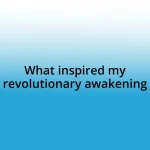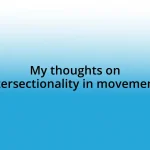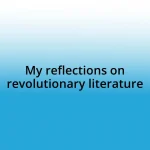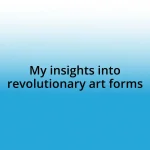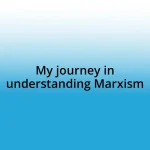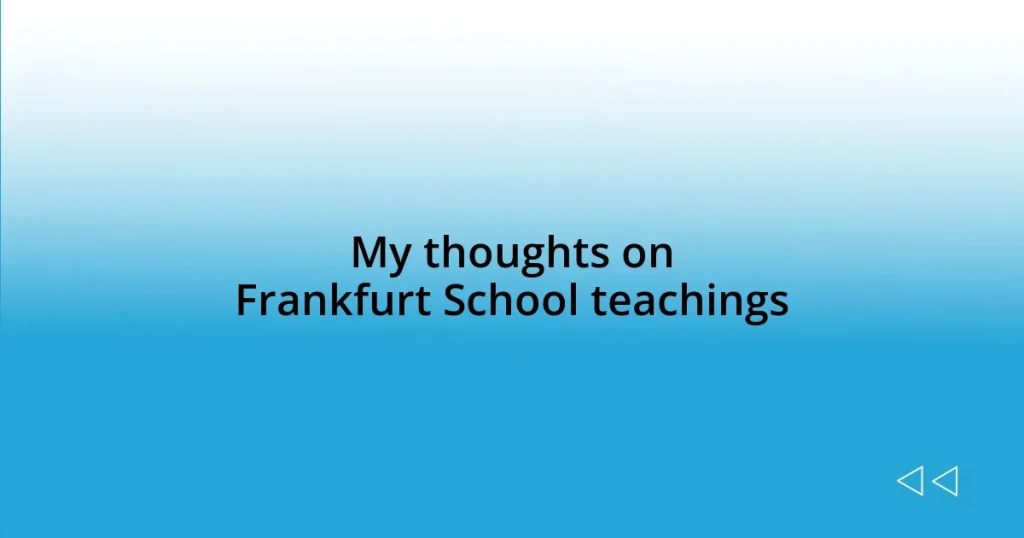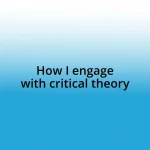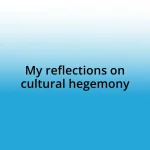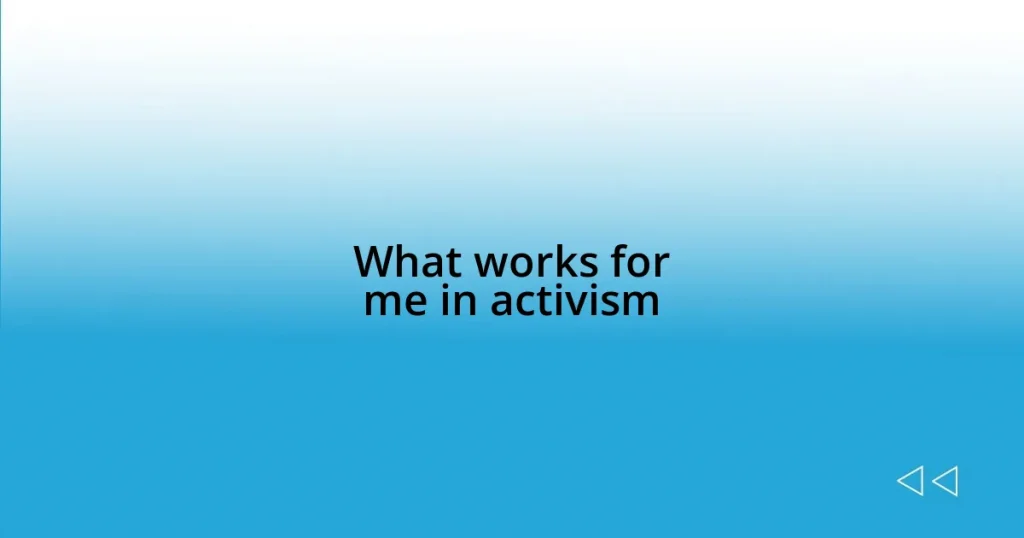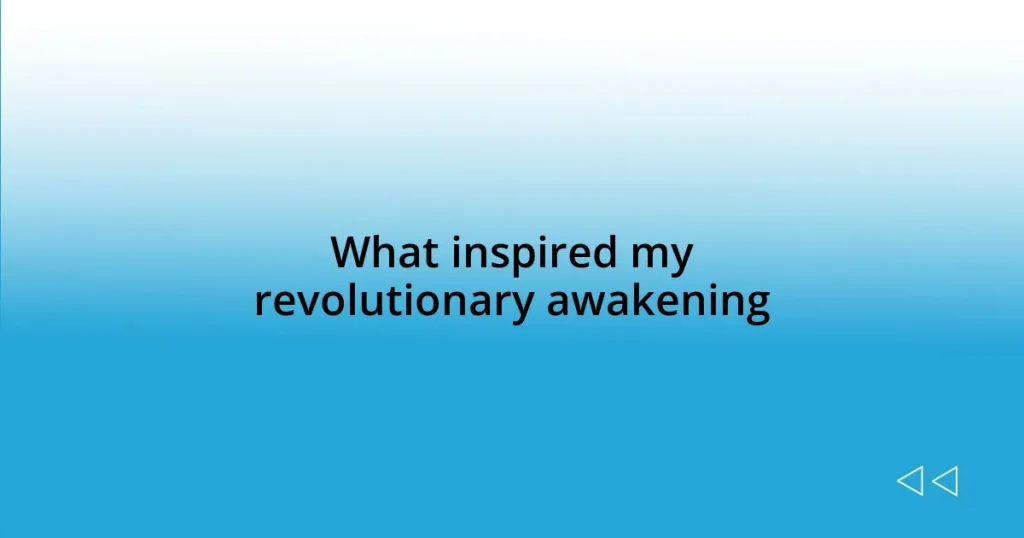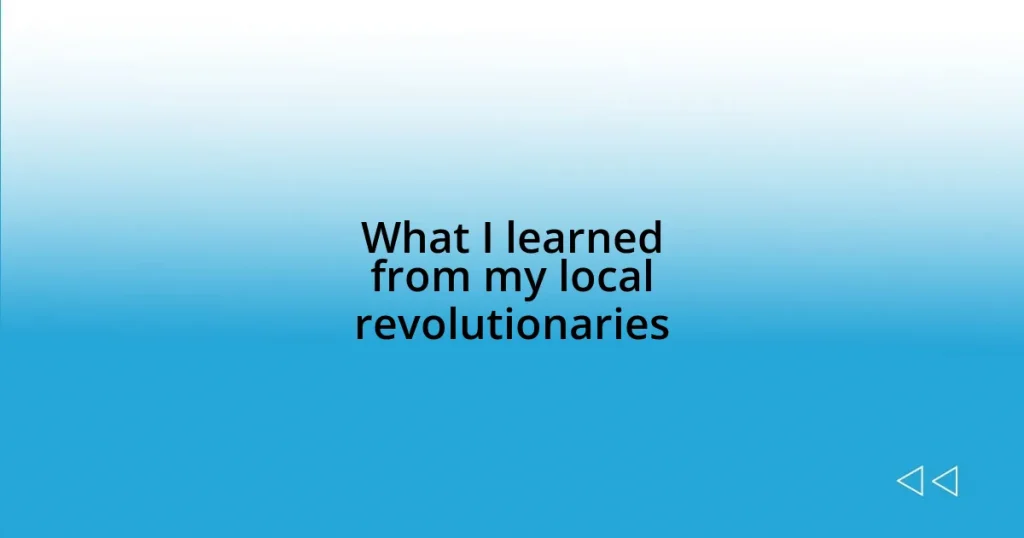Key takeaways:
- The Frankfurt School explores the intersection of culture and capitalism, emphasizing the powerful influence of the “culture industry” on our perceptions and identities.
- Key figures such as Max Horkheimer, Theodor Adorno, Herbert Marcuse, and Erich Fromm contributed to critical theory, challenging dominant ideologies and advocating for individual awareness and social change.
- Main concepts include critiques of ideology, the importance of dialectical thinking, and the role of cultural criticism in understanding societal dynamics and advocating for inclusivity.
- The teachings remain relevant in contemporary social issues, including consumerism, activism, and the impact of social media on public discourse and systemic inequality.
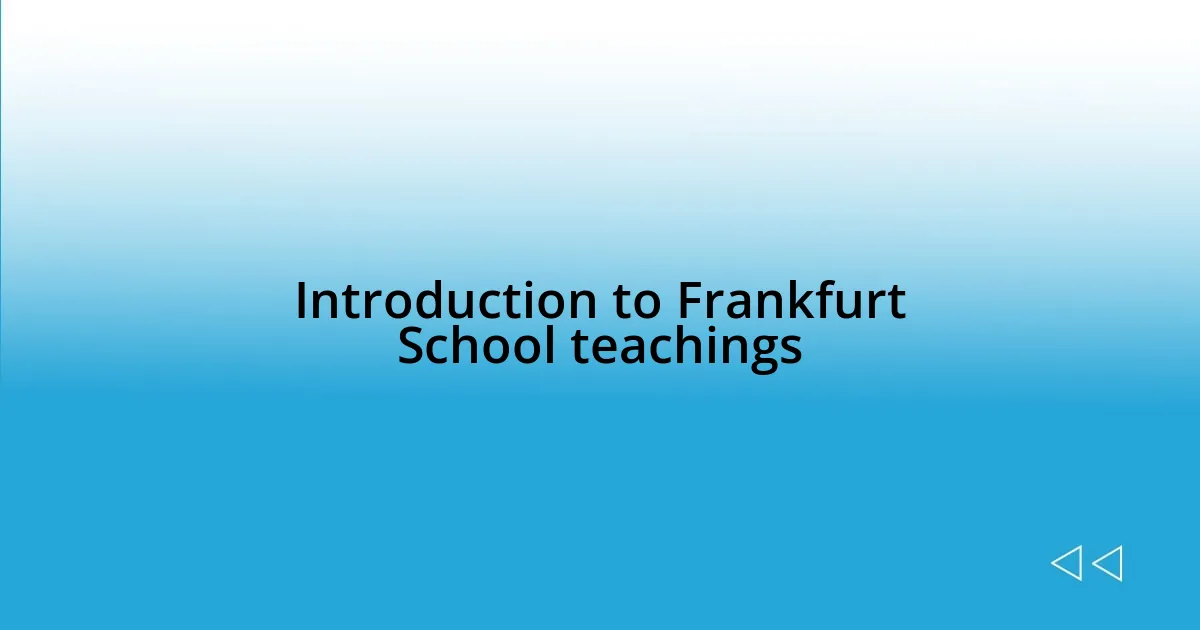
Introduction to Frankfurt School teachings
The Frankfurt School, originating in the early 20th century, represents a fascinating convergence of philosophy, sociology, and cultural criticism. I remember diving into their works for the first time; it felt like peeling back layers of societal norms that had long gone unchallenged. How many of us have pondered the forces shaping our thoughts and behaviors? The thinkers associated with the school, such as Max Horkheimer and Theodor Adorno, posited that culture is not just a backdrop but a powerful influence that molds our social reality.
Their critical theory aimed to uncover the ways in which capitalism and culture intersect, questioning the status quo and urging us to think deeply about our lives. One aspect that struck me was their exploration of the “culture industry”—a term that encapsulates how mass media commodifies culture, turning meaningful expressions into mere products. Reflecting on this, I often wonder: are we merely passive consumers, or can we break away and reclaim our authentic selves in this landscape?
As I delved deeper into their teachings, I realized their insights are more relevant than ever. They challenge us to examine our perceptions and question the meanings we often take for granted. The call to awareness resonates with anyone yearning for a deeper understanding of the forces at play in our lives. After all, if we can recognize the power of these influences, perhaps we can begin to shape a more equitable and reflective society.
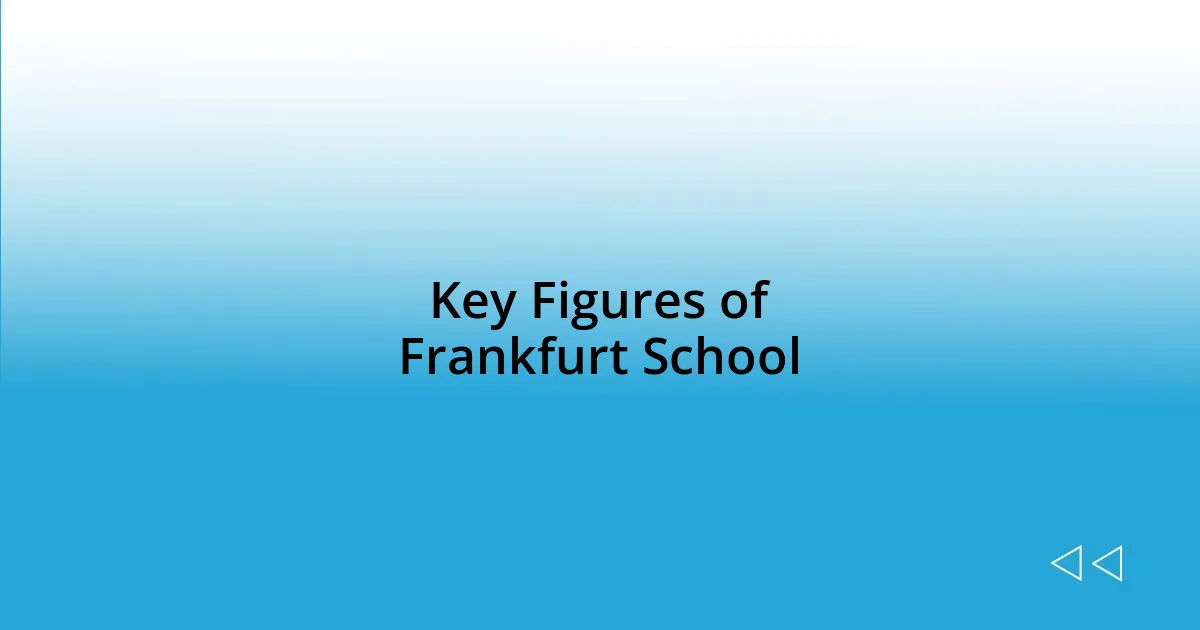
Key Figures of Frankfurt School
When exploring the key figures behind the Frankfurt School, a few names stand out that have profoundly influenced its theories. What strikes me when I think about thinkers like Herbert Marcuse and Erich Fromm is how their ideas still resonate today, challenging us to rethink freedom and authority. Their analyses compel me to reflect on how societal pressures can stifle individuality—something I’ve seen in my own experiences navigating different cultural expectations.
- Max Horkheimer: As a co-founder, he emphasized the need for critical theory to address the social issues of the time.
- Theodor Adorno: He contributed his ideas on the culture industry, highlighting how mass media manipulates cultural forms.
- Herbert Marcuse: He critiqued one-dimensional thinking and championed the idea of a truly free society.
- Erich Fromm: Focusing on the relationship between society and individual psychology, he introduced the idea of “social character,” which examines how cultural norms shape personality.
These thinkers remind me that our perceptions are often shaped by larger societal forces. Engaging with their ideas makes me pause and reflect on my own journey through culture and identity. I appreciate how they invite us to envision a different world, one where we are not just products of our environment, but active participants capable of change.
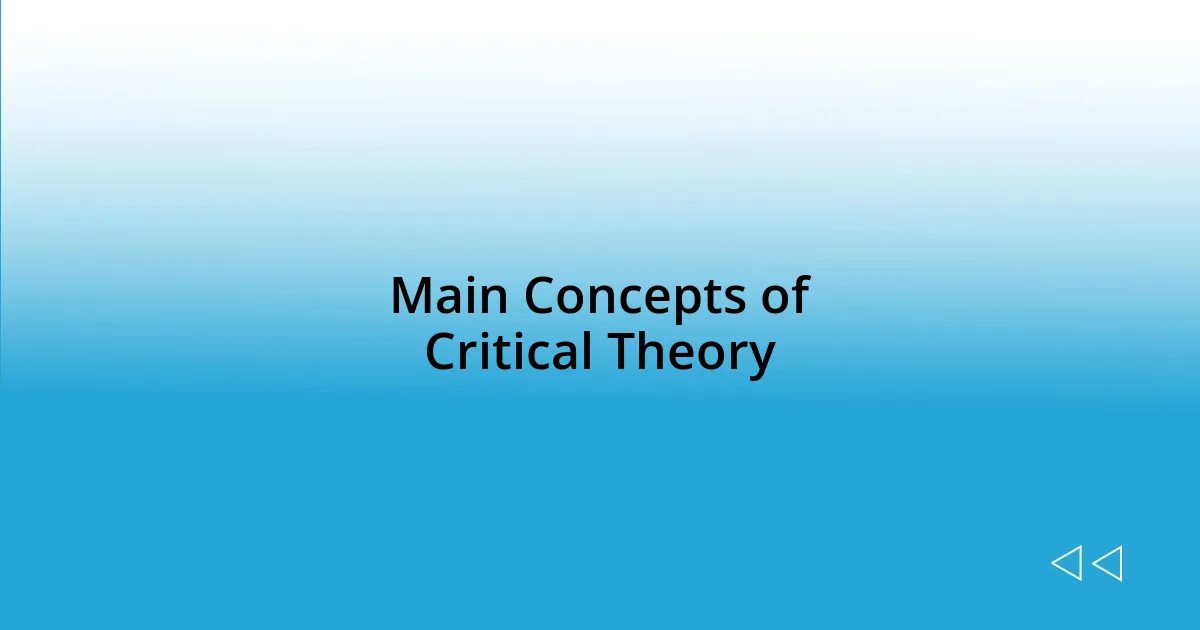
Main Concepts of Critical Theory
The core of critical theory revolves around understanding the intricate relationship between society and culture. One of the main concepts is the idea of the “culture industry,” which, from my perspective, speaks volumes about how mass media can dilute genuine cultural expressions into mere entertainment. I’ve often found myself contemplating the movies or music we consume daily, realizing how easy it is to overlook the underlying messages and influences around us. How often do we mindlessly consume content without questioning its impact on our beliefs and actions?
Another significant aspect is the critique of ideology. Critical theorists argue that dominant ideologies perpetuate social inequalities. This resonates with my experience when I see mainstream narratives that marginalize certain voices. It’s challenging to realize the extent to which our social frameworks dictate our understanding of reality. By recognizing these ideologies, we can start to reclaim our narratives and make space for more inclusive conversations.
Lastly, the concept of dialectical thinking emerged as a vital tool for critical analysis. It encourages us to see contradictions within society and to understand that change is possible. Reflecting on my own life, I’ve encountered various contradictions that push me to question norms I had long accepted. This has motivated me to engage more deeply with the world around me, seeking to understand different perspectives and fostering a spirit of inquiry rather than blind acceptance.
| Main Concepts | Description |
|---|---|
| Culture Industry | Mass media transforms cultural products into mere commodities, diluting their authenticity. |
| Critique of Ideology | Dominant ideologies perpetuate inequalities and shape how we perceive our reality. |
| Dialectical Thinking | This approach encourages recognizing societal contradictions and opens pathways for change. |
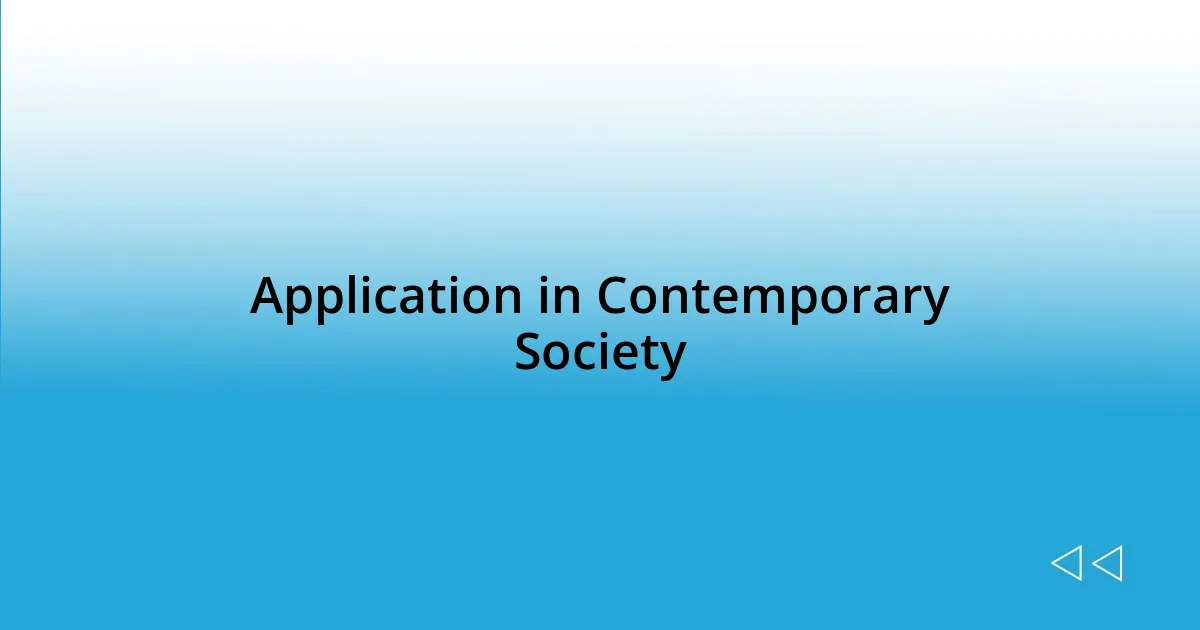
Application in Contemporary Society
When I think about the contemporary application of Frankfurt School teachings, one area that stands out is the way social media channels affect our perception of reality. I often catch myself scrolling through my feed, noticing how curated content paints a glamorous picture of life. Have you ever wondered how much of this is authentic versus manufactured? This overlap with the culture industry concept reveals how easily we can become ensnared in a web of illusion, losing touch with our individuality in the process.
Another compelling application is in activism. The critiques of ideology pushed me to re-examine my own beliefs. I remember attending a protest once, feeling energized alongside others who were passionate about change. It made me realize how societal narratives shape our understanding and drive us to take action. How much power lies in recognizing these narratives? By questioning dominant ideologies, we can foster more inclusive movements that challenge systemic injustices.
Additionally, the principle of dialectical thinking has become crucial for navigating today’s polarized discussions. I’ve found that when I engage in conversations with people who hold differing views, I often uncover underlying contradictions, prompting me to rethink my own stances. Isn’t it fascinating how such a simple concept could pave the way for deeper understanding? This mindset not only promotes critical dialogue but also encourages growth in our perspectives, making it clear that change is not only possible but necessary in our contemporary society.
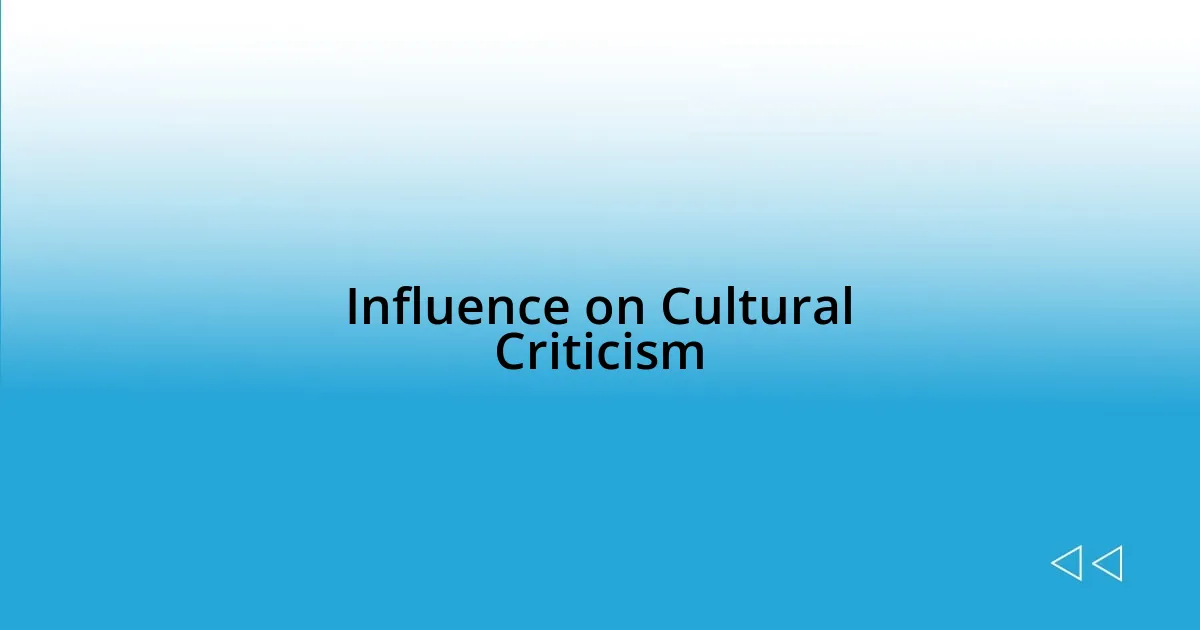
Influence on Cultural Criticism
Cultural criticism, as shaped by the Frankfurt School, profoundly influences how we perceive and analyze the arts and media around us. I believe this perspective urges us to peel back the layers of cultural production, revealing how what we consume is often a reflection of power dynamics. For example, when I listen to a song that has topped the charts, I can’t help but wonder: what narrative is being sold to us? Are we merely enjoying it, or are we unconsciously being shaped by its message?
Furthermore, I recall a moment during an art exhibit where pieces blatantly critiqued consumerism. I felt a rush of excitement as I recognized the echoes of the Frankfurt School’s thoughts in that space. It made me reflect—how often does art act as a mirror, revealing uncomfortable truths about our society? This experience solidified my understanding that cultural products are not just for enjoyment; they are vehicles of ideology that can challenge our perceptions and inspire critical thinking.
Lastly, engaging in discussions about cultural artifacts often leads me to question why certain narratives dominate while others are sidelined. I’ve experienced intense debates with friends about movies that lend themselves to mainstream ideologies versus those that break the mold. These conversations have taught me that cultural criticism isn’t merely an academic exercise; it’s a tool for empowerment that encourages us to advocate for broader representation and inclusivity in arts and media. Why settle for passive consumption when we can actively shape the cultural landscape around us?
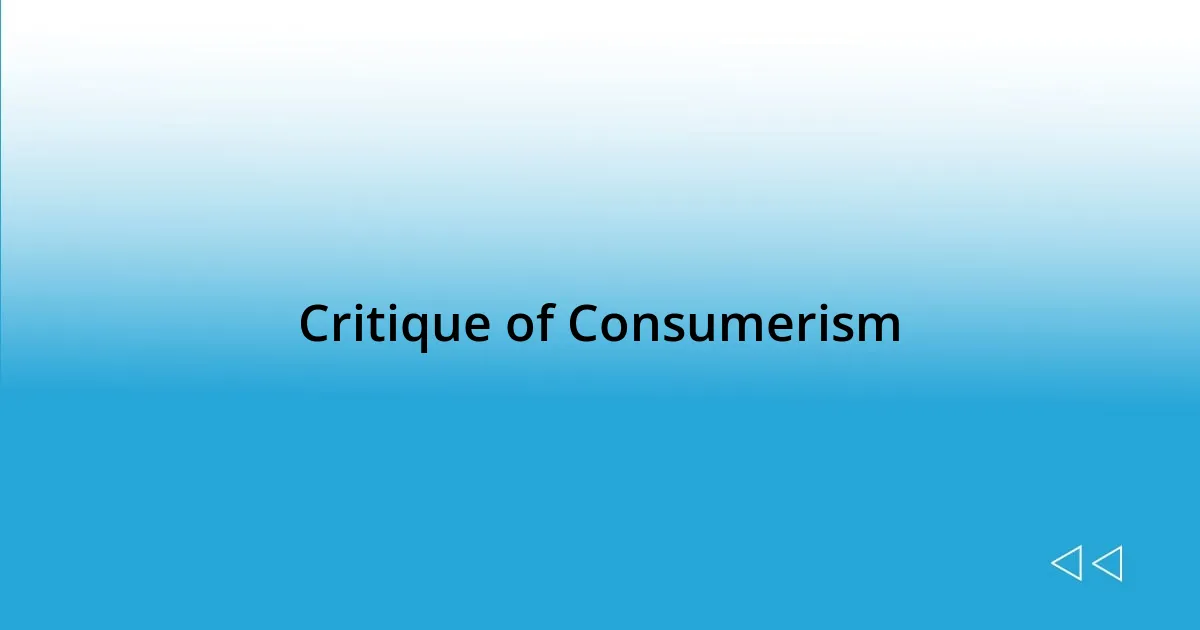
Critique of Consumerism
When I delve into the critique of consumerism, I can’t shake the feeling that we’re often trapped in a loop of desire. Just the other day, I found myself in a shopping mall, surrounded by flashing signs and the smell of freshly baked pretzels, which reminded me of how easily we can be seduced into buying things we don’t need. Have you ever walked out of a store feeling a rush, only to wonder why you bought that item? It’s a fleeting high that leaves us chasing after the next best thing, rather than finding satisfaction in what we already possess.
Reflecting on my own experiences, I realize that consumerism feeds into our identities. I remember feeling judged when I didn’t have the latest smartphone, as if my value hinged on that shiny device. This speaks to a broader truth about how capitalism skews our self-worth, tying it to material possessions. What if we started to question this connection? By doing so, we can reclaim our sense of self, prioritizing meaningful experiences over transient purchases, ultimately redefining who we are outside of what we consume.
In conversations with friends, I’ve observed how our discussions about consumer habits can shift toward a deeper understanding of societal pressures. One evening, we debated about the role of advertising in shaping our preferences, each of us sharing eye-opening insights. Isn’t it astonishing how ads play on our insecurities, nudging us to buy into unattainable ideals? These reflections make me appreciate the urgency of fostering critical thinking, as we learn to navigate the barrage of messages designed to manipulate our desires rather than inspire authenticity in how we live and what we choose to value.
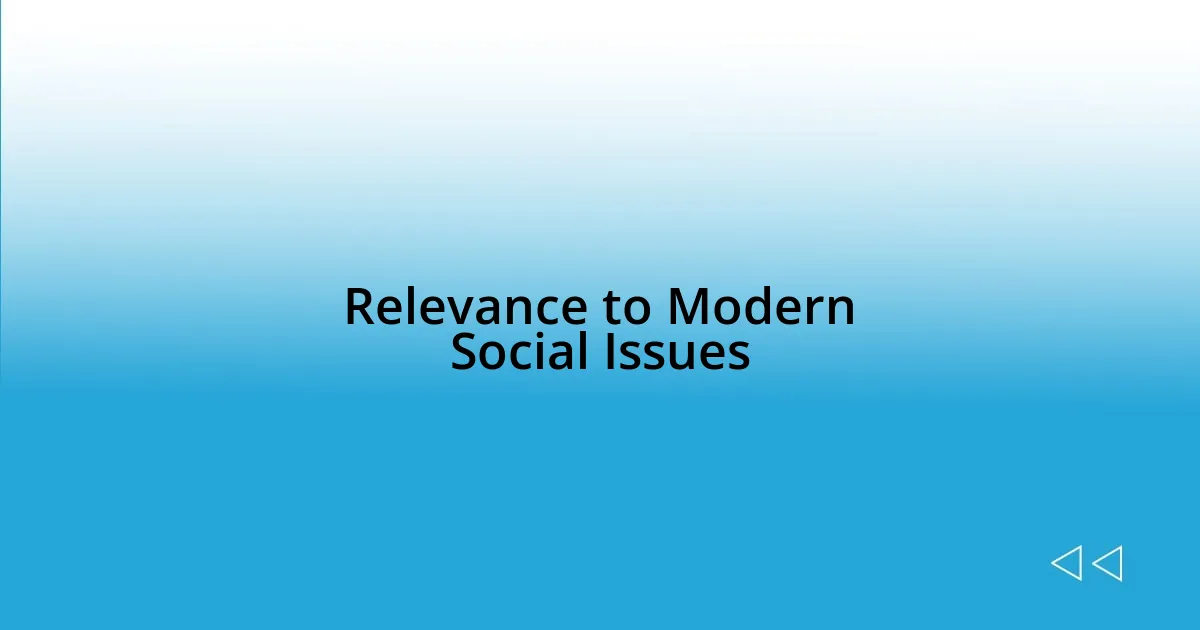
Relevance to Modern Social Issues
The teachings of the Frankfurt School resonate deeply when I look at today’s social issues, particularly regarding systemic inequality. Just last week, I attended a community meeting where we discussed the effects of gentrification in our neighborhood. It was heart-wrenching to hear stories of long-time residents feeling pushed out of their homes, highlighting how socio-economic structures can marginalize communities. This discussion reminded me of how essential it is to examine power relations—who benefits from changes in our environment and who pays the price?
Intersecting identity politics with the Frankfurt School’s insights, I’ve come to understand the importance of intersectionality in today’s activism. During a recent workshop on social justice, I was struck by how many individuals shared their unique experiences of oppression—based not just on race, but also on gender, sexuality, and class. It made me realize that we can’t fully address social issues unless we consider how these identities overlap. How do we ensure diverse voices are heard in our movement? I believe that by prioritizing inclusivity, we not only strengthen our advocacy but also challenge the status quo that attempts to marginalize certain groups.
Reflecting on my experiences with social media, I often ponder its role in shaping public discourse. For instance, I’ve seen how hashtags can rally millions for a cause overnight, yet they can also dilute complex issues into simple slogans. It leaves me asking: are we genuinely engaging with the issues, or are we just participating in a trend? This duality, both empowering and reductive, speaks volumes about the Frankfurt School’s critique of culture. Engaging critically with these platforms can empower us to dig deeper, fostering a more meaningful dialogue around the pressing social issues we face today.


